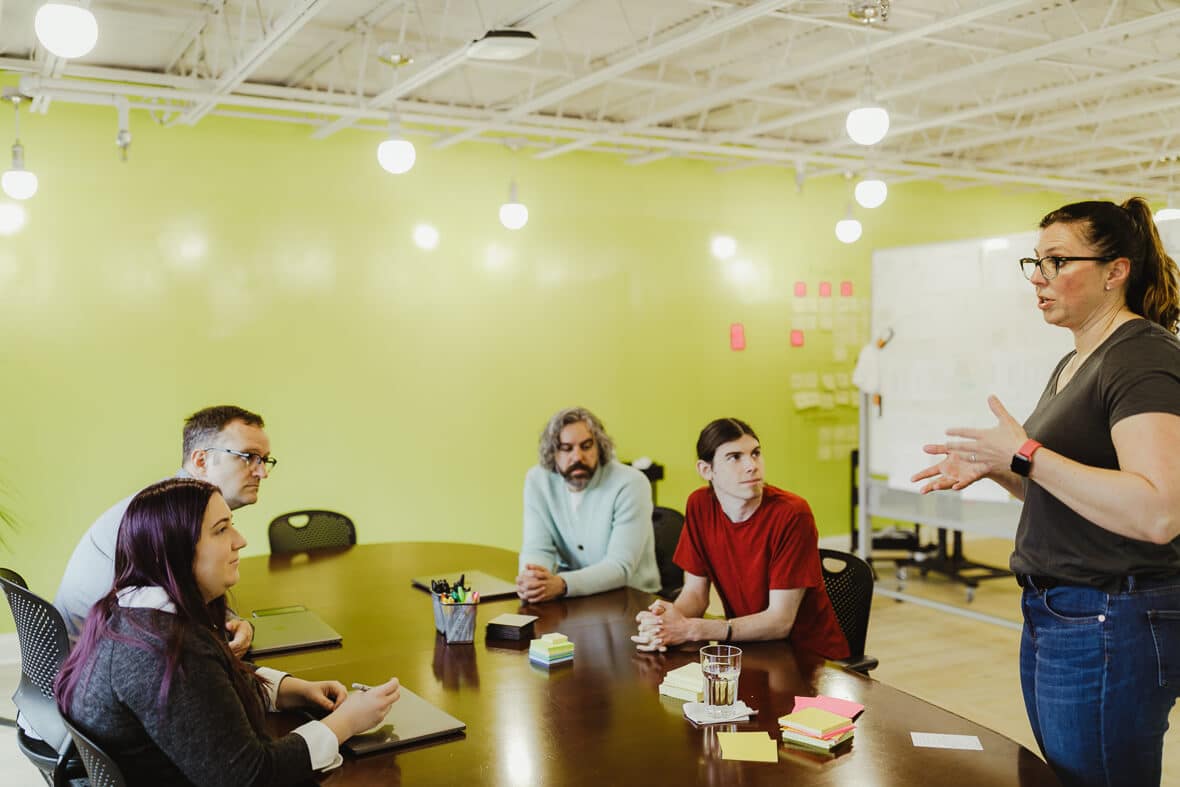I’ve always had a hard time talking to “blue-sky” thinkers and entrepreneurs with the “next big idea.” It’s not because I don’t enjoy talking to them. It’s the opposite — they hate when I question them.
I’ve been guilty of this, too. You’re passionate about your good ideas — you love them. And when people criticize them, it can feel personal. It’s extremely hard to be objective or analytical.
But a consultant’s job is to get you and your idea to the next level. And they can’t do that without a little pessimism and a lot of hard questions.
Don’t Expect Us to Believe in Your Idea
Your napkin sketches are great. Your elevator pitch is short, concise, and poignant. And your prototype? It solves the happy path. You believe in your idea, and that’s essential.
But when you share your idea with an outside consultant, don’t expect them to believe in it, too. Prepare to do a bit of “selling” to us, and prepared to answer a lot of “what if” questions.
While your idea solves a problem in the best-case scenarios, does it hold up when looked at from different perspectives? You know everything that could go right, but we’ll start to dive into what could go wrong.
Don’t Resist Change
As a designer, my first sketch is not the final solution. Ideas get better through continuous iteration — and occasionally by throwing it away altogether.
If you come to us with napkin sketches, or even a prototype, don’t be married to them. While they are a great starting point, expect some significant changes.
Don’t Expect to Launch All at Once
Some of the biggest changes to your original idea is managing initial scope.
Most major software projects (social media networks, video games, B2B software, etc.) are much bigger today than they were at launch. They started small and kept making it better.
Plan to launch with what my colleague, Taylor Vandenhoek, describes as a Minimal Viable, Lovable, Product — MVLP. That means asking questions like:
- What can we launch in the next 6 months that we can get in front of people and grow users?
- What features can wait?
- If we are developing a business tool, does it need to have a full-fledged reporting tool at launch, or can we keep that as a manual process for now?
Don’t Worry
So you came to us with an idea, and we started asking a lot of questions. Don’t worry! It doesn’t mean your idea is bad. We are just doing our due-diligence as design, development, and business consultants.
Good consultants take enormous pride in their work. We hate (and often refuse) to do work we don’t believe in.
So don’t pay consultants to agree with you. It’s a waste of your precious time and money. If a consultant isn’t asking hard questions, they aren’t doing their job.

